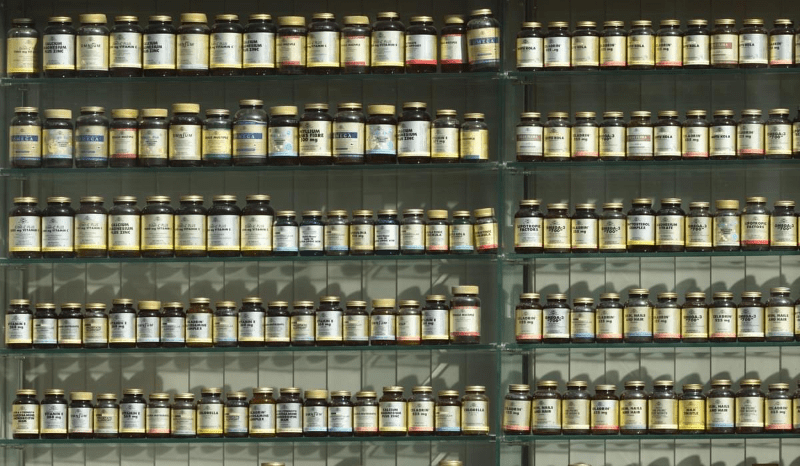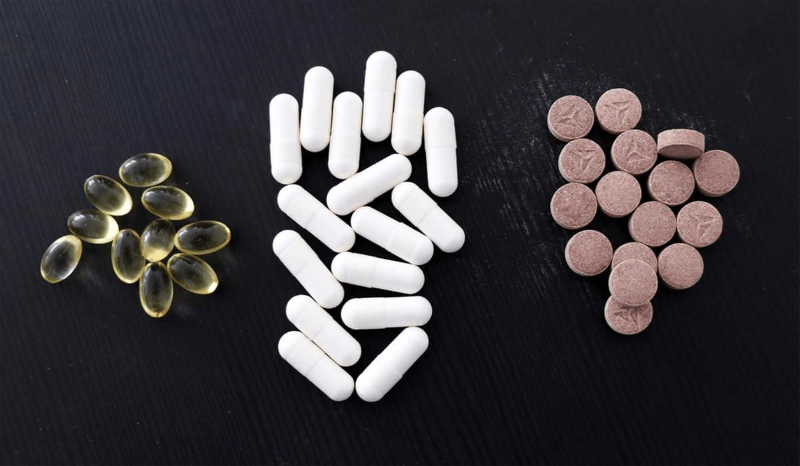Guide to Vitamin B12 – Plant Based Nutrition

Table of Contents
What’s the big deal with Vitamin B12?
Like most vitamins, B12 cannot be made by the body and must be consumed in our diet.
If you’re new to a plant based diet you may have heard people talking about taking Vitamin B12 supplements and might be wondering if you need them too.
You see, the thing about Vitamin B12 is that it’s only found in animal products. So naturally that poses a problem for those who choose to follow a 100% plant based or vegan diet. The good news is that some foods are fortified with Vitamin B12.
Read on to find out more about Vitamin B12, supplements, fortified foods, and the risks associated with a lack of this important vitamin.

Please remember that you should consult your doctor before beginning any additional supplementation.
What foods are fortified with Vitamin B12?
The good news is that some foods are fortified with Vitamin B12. This often includes some breakfast cereals, nutritional yeast, vegemite, plant milks and meat substitutes.
Please keep in mind that not every brand will be fortified. You should check the labels on these foods to check if they contain B12 and how much is present.
How much do I need?
According to the National Institutes of Health Office of Dietary Supplements the RDA (recommended daily allowance) for B12 is 2.4mcg for adult men and women. Higher levels are recommended for women who are pregnant (2.6mcg) or breastfeeding (2.8mcg).
What does that look like in real food terms?
For a vegetarian that could be 2 glasses of low fat dairy milk. For someone who is 100% plant based or vegan, that’s hard to say. Fortified foods vary in quality and the level of fortification. You should check the label for the amount of B12 available per serving.
The Vegan Society recommends aiming for 3mcg of B12 per day from fortified foods. That means if one serving of a fortified food provides 1mcg of B12, then you should aim for 3 servings daily.

Hold on, I thought that fermented foods contained Vitamin B12?
Some research suggests that B12 may be found in live fermented foods but it is not known if this form is bio available (able to be used by our bodies) and more research needs to be done.
In the mean time you can rely on fortified foods or B12 supplements.

If you’re vegetarian or pescatarian…
If you only consume animal products sometimes, you may want to start introducing some fortified foods into your diet. You may also want to have your levels of B12 checked by your doctor to determine whether additional supplementation would be beneficial for you.

Risks of deficiency
A B12 deficiency can lead to side effects such as confusion, depression, weakness, fatigue, pernicious anaemia and irreversible nerve damage. A full list of symptoms + side effects can be found here.
If you suspect you may be at risk of B12 deficiency you must consult your doctor. They will examine you and likely run a blood test. If you are found to have low levels of B12, your doctor will prescribe you a course of supplements and or B12 injections.
Should you be taking Vitamin B12 supplements?
The Vegan Society recommends doing one of the following:
- Eat fortified foods two or three times a day to get at least three micrograms (mcg or µg) of B12 a day
- OR Take one B12 supplement daily providing at least 10 micrograms
- OR Take a weekly B12 supplement providing at least 2000 micrograms.
You should consult your doctor to check that supplements won’t interfere with any existing medication you are on and to determine the correct supplement and dosage for you.

While B12 is the only nutrient that is unattainable from natural plant sources, it is also difficult to obtain high levels of Omega 3. Omega 3 fatty acids are vital for health, particularly brain health. To learn more about Omega 3 and plant based nutrition click here.
This article is designed to inform and is not a substitute for medical advice. Please consult your doctor before beginning supplementation.
References + Further Reading:
Do you need supplements on a plant based diet? – Roz Fraser
B12 – Are you getting it? by Jack Norris, RD.
What every vegan should know about Vitamin B12 – The Vegan Society.
Vitamin B12: What to Know – WebMD
B12 Deficiency – Health Service Executive Ireland
Vitamin B12 – National Institutes of Health, Office of Dietary Supplements.
Vegetarian and Vegan Sources of B12 – Medical News Today